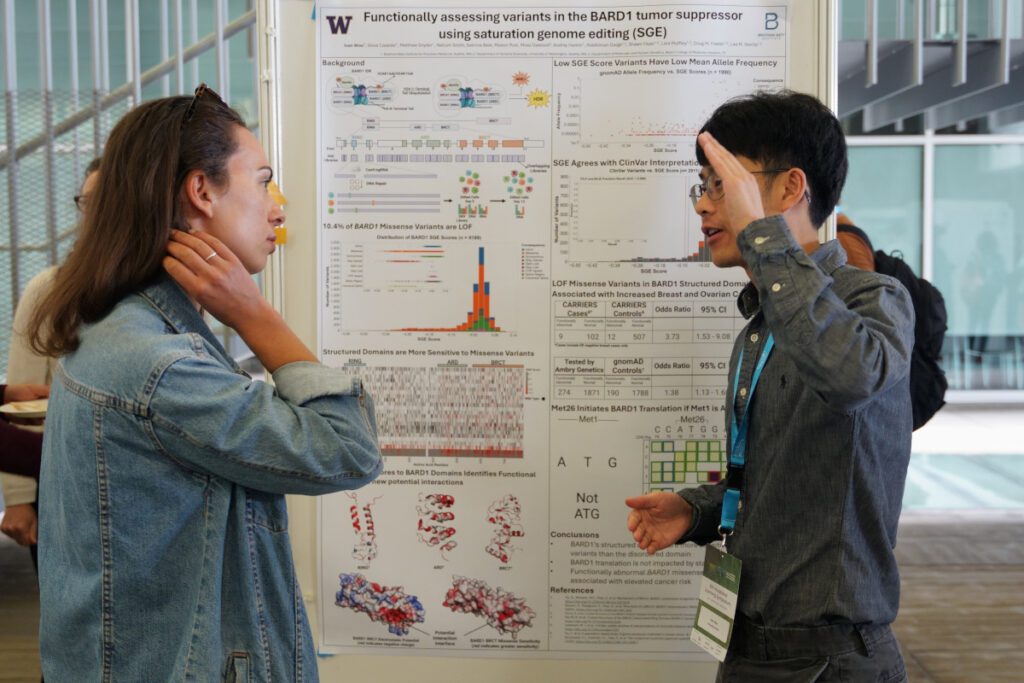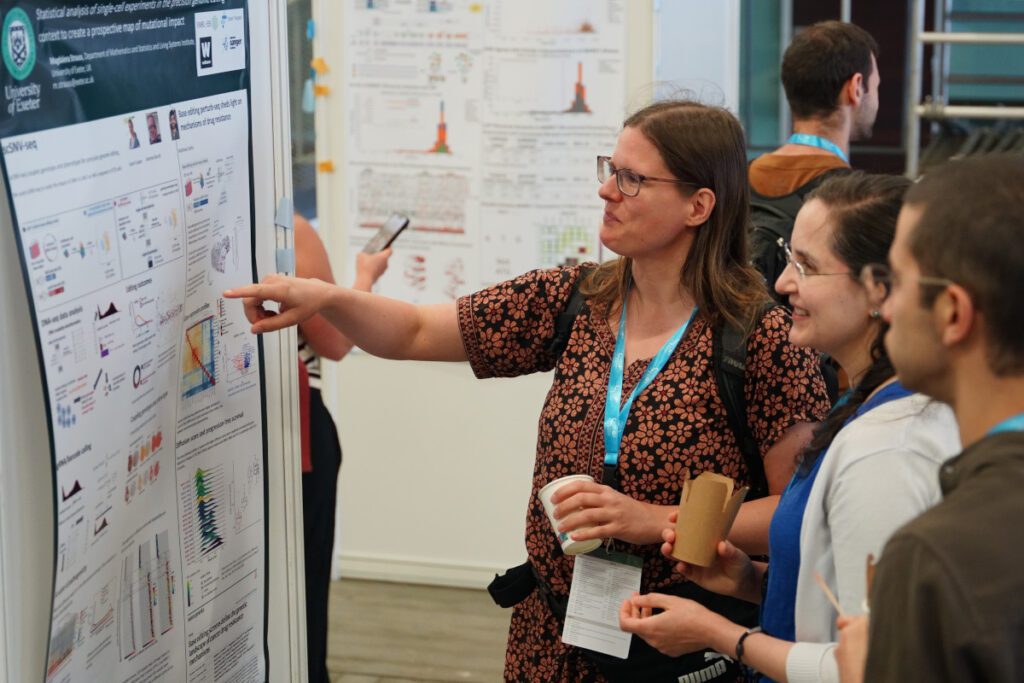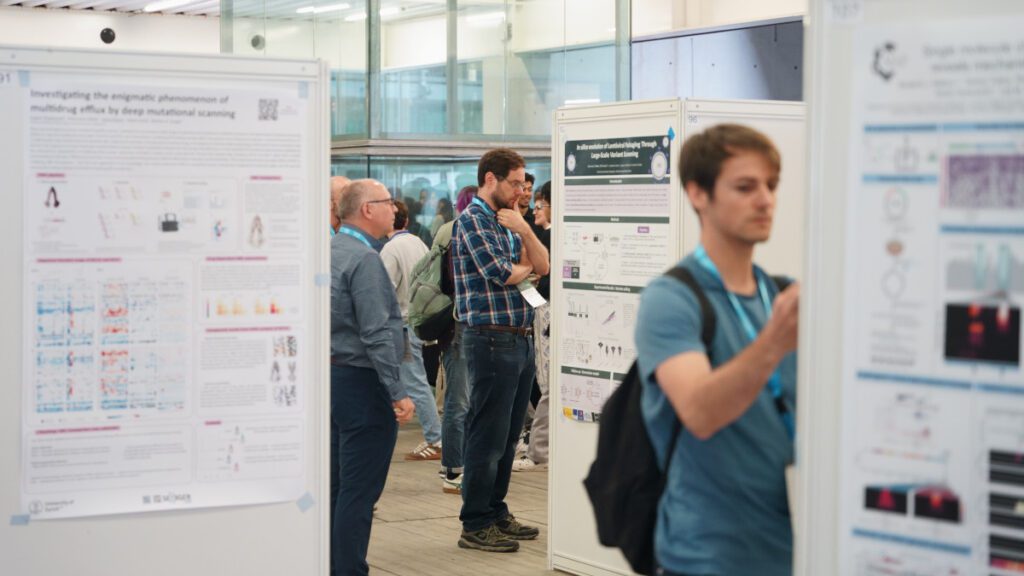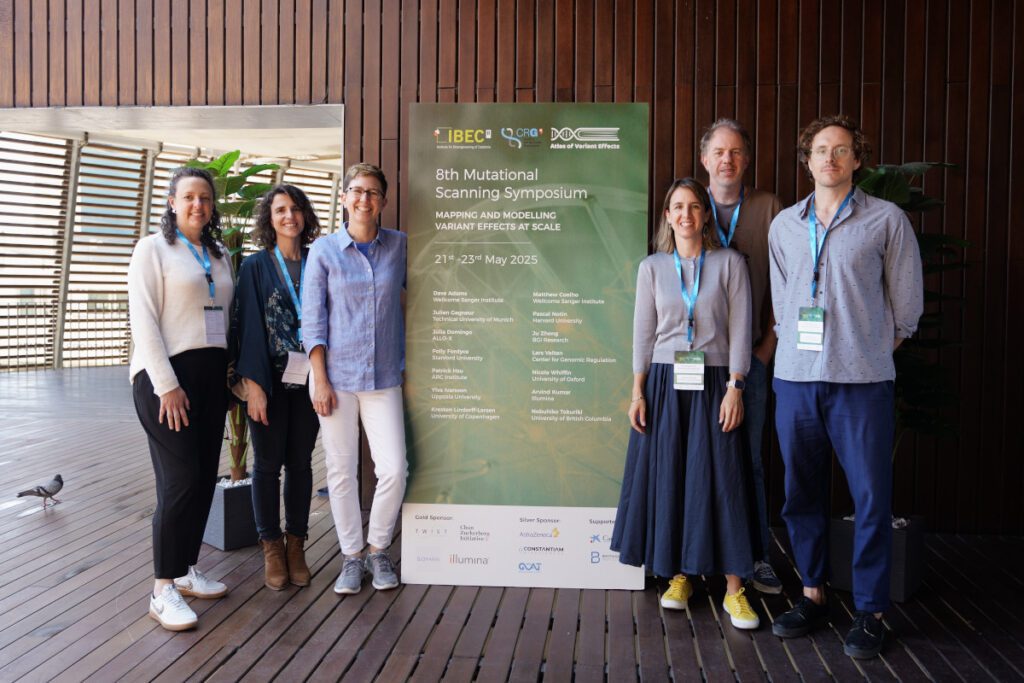More than 300 people attended the eighth Mutational Scanning Symposium, which took place from 21 to 23 May at the Barcelona Biomedical Research Park. The symposium is a key event for discussing the latest advances in mutational scanning technologies and Multiplex Assays of Variant Effects. This year, the symposium was co-organised by the Institute for Bioengineering of Catalonia, the Centre for Genomic Regulation, and the international Atlas of Variant Effects initiative.
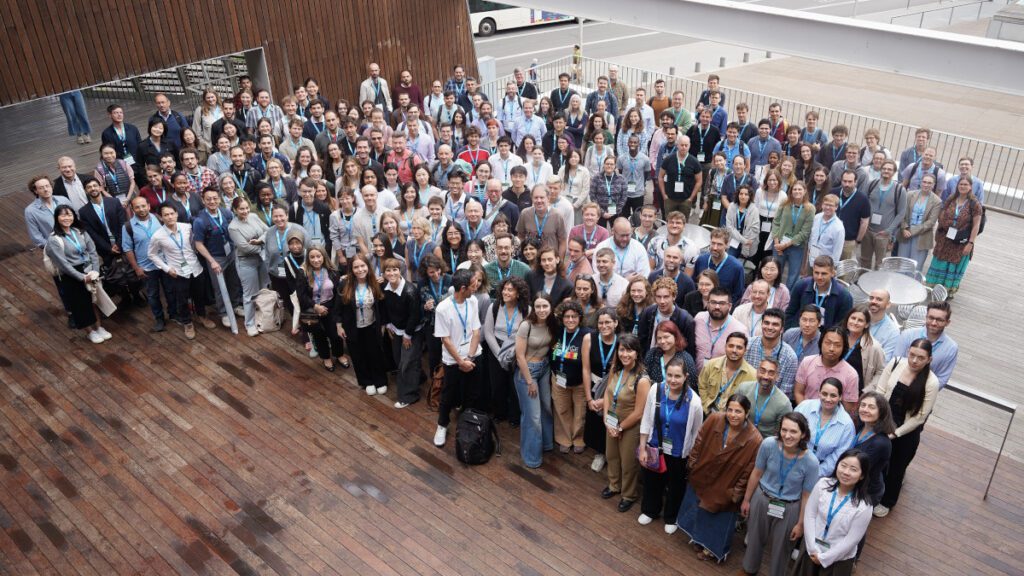
From 21 to 23 May 2025, the Parc de Recerca Biomèdica de Barcelona (PRBB) hosted the eighth edition of the Mutational Scanning Symposium (MSS). This international benchmark event brought together 250 attendees in person and 60 virtually from 20 different countries to discuss the latest advances in mutational scanning technologies and Multiplex Assays of Variant Effects (MAVEs). The symposium was co-organised by the Institute for Bioengineering of Catalonia (IBEC), the Centre for Genomic Regulation (CRG) and the Atlas of Variant Effects initiative.
“This symposium plays a key role bridging the community of scientists and clinicians,” says Benedetta Bolognesi, a senior researcher at IBEC and a member of the MSS 2025 organising committee.
For two and a half days, experts in functional genomics, protein science, precision medicine, computational genetics, machine learning and variant interpretation exchanged knowledge, presented their latest work and discussed the future of this rapidly evolving field. The programme included over 30 scientific presentations and poster sessions, as well as two interactive workshops focusing on variant interpretation in clinical practice and protein design.
This symposium plays a key role bridging the community of scientists and clinicians.
Benedetta Bolognesi
The day featured internationally renowned speakers, including Dave Dams (Wellcome Sanger Institute), Julien Gagneur (Technical University of Munich), Júlia Domingo (ALLO-X), Polly Fordyce (Stanford University), Patrick Hsu (ARC Institute), Ylva Ivarsson (Uppsala University) , Kresten Lindorff-Larsen (University of Copenhagen), Matthew Coelho (Wellcome Sanger Institute), Pascal Notin (Harvard University), Ju Zheng (BGI Research), Lars Velten (CRG), Nicola Whiffin (University of Oxford), Arvind Kumar (Illumina), and Nobuhiko Tokuriki (University of British Columbia).
The day before the symposium, IBEC hosted the first workshop, which focused on model selection for variant effect prediction and protein design. This workshop was led by Noelia Ferruz and Albert Escobedo of the CRG, and Pascal Notin of Harvard University. The event concluded on 23 May with a second workshop on transferring functional data to the clinical setting. This workshop emphasised how to share MAVEs datasets in a way that is useful for healthcare professionals. It was led by Lea Starita, Abbye McEwen, Malvika Tejura (all from the University of Washington) and Alan Rubin (from the Walter and Eliza Hall Institute).
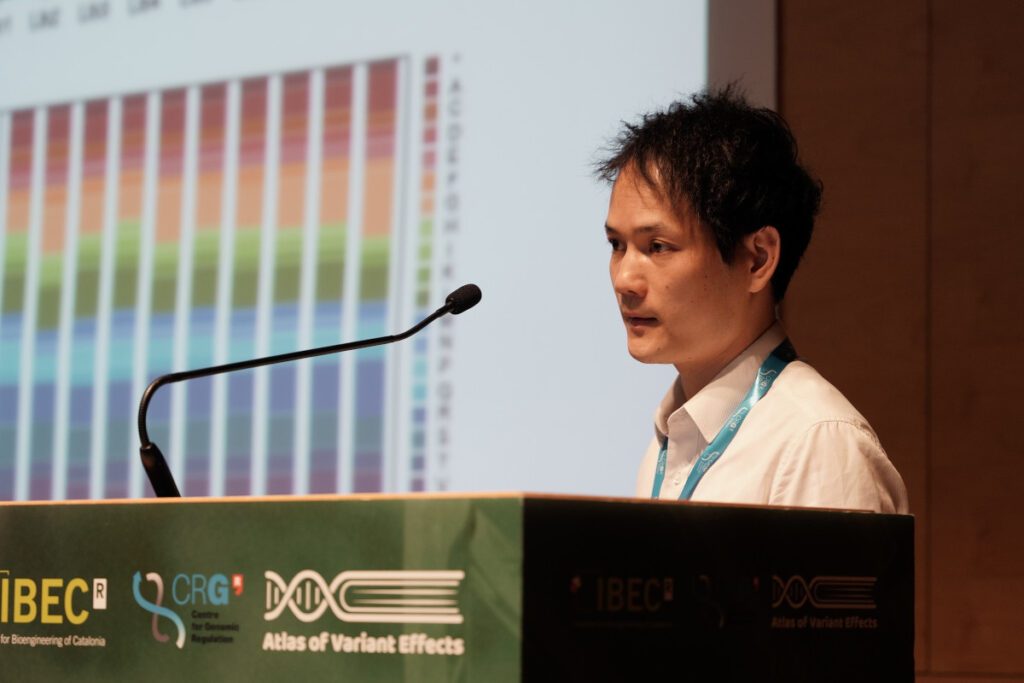
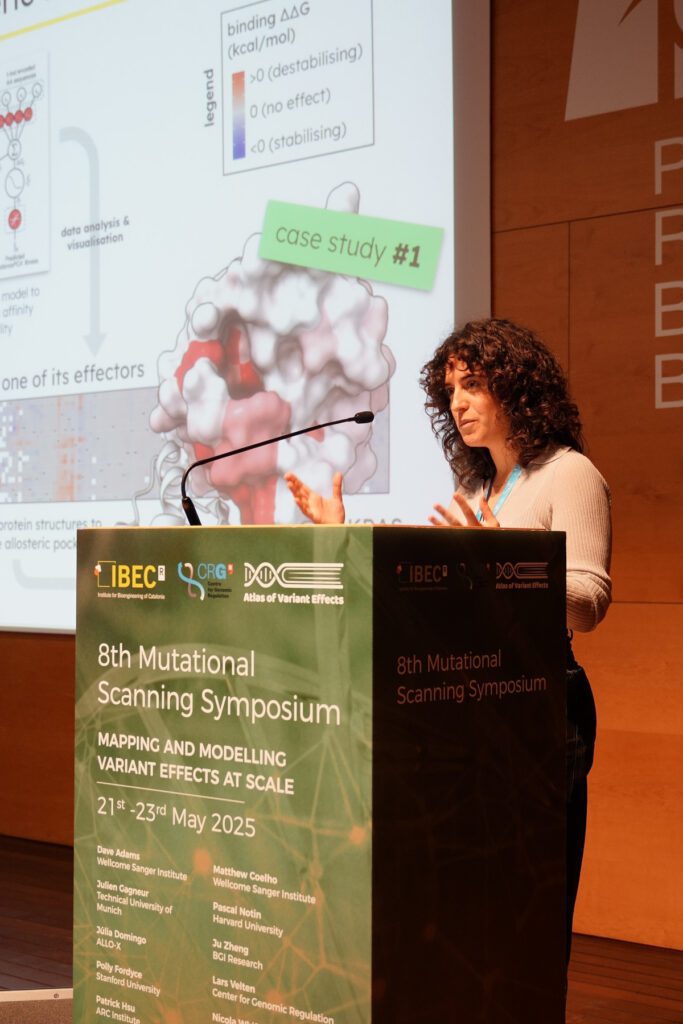
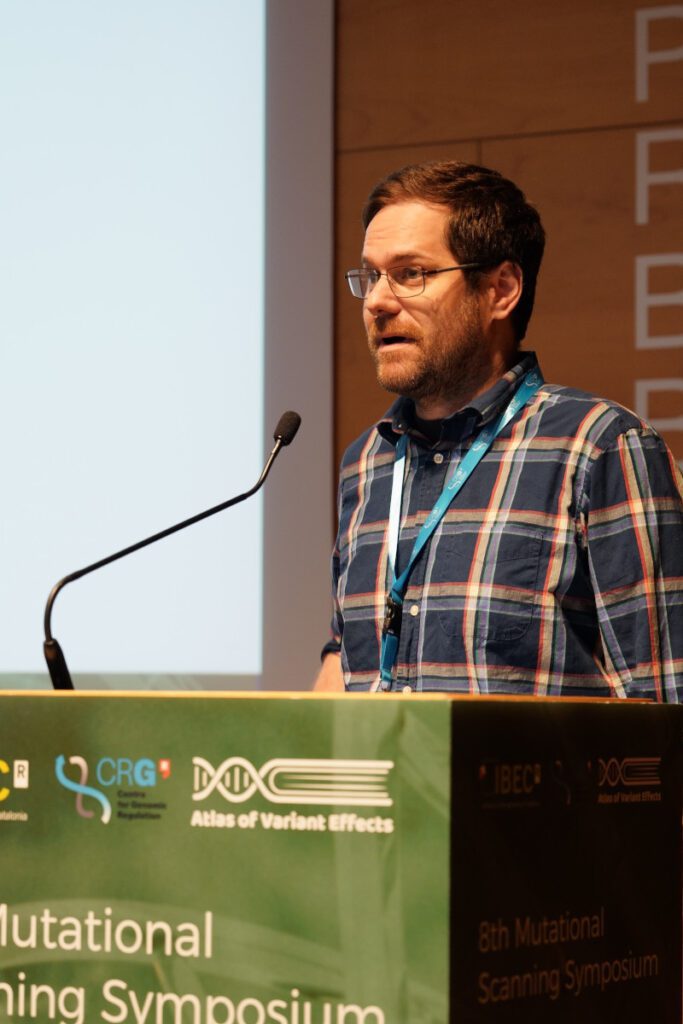
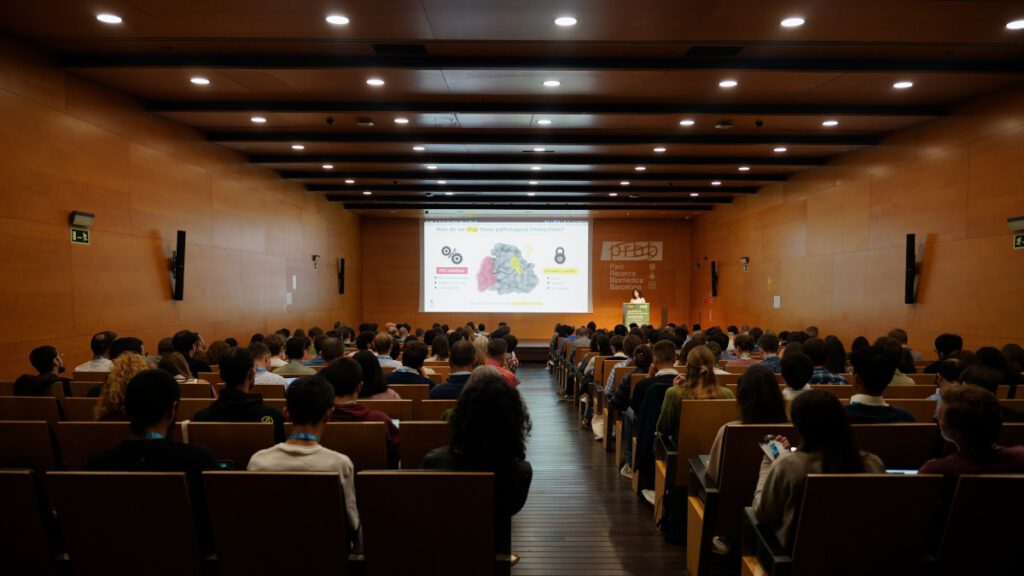
Topics included the functional interpretation of genetic variants, protein sequence–structure relationships, the application of artificial intelligence to protein design and biophysical modelling. The symposium also provided an overview of emerging technologies in DNA synthesis and saturation mutagenesis, with a particular focus on the latest machine learning models applied to biomedical research.
The high level of attendance and participation established this meeting as a leading global platform for researchers specialising in the functional understanding of the human genome and its impact on individual health. Support for this year’s event came from industry leaders such as Twist Bioscience, BioMarin, the Chan Zuckerberg Initiative, Illumina, the Brotman Baty Institute, AstraZeneca, Constantia Biosciences, CaixaBank and GCATbio.
As a co-organising institution, IBEC reaffirms its commitment to interdisciplinary research and its position at the forefront of international bioengineering and functional genomics.
